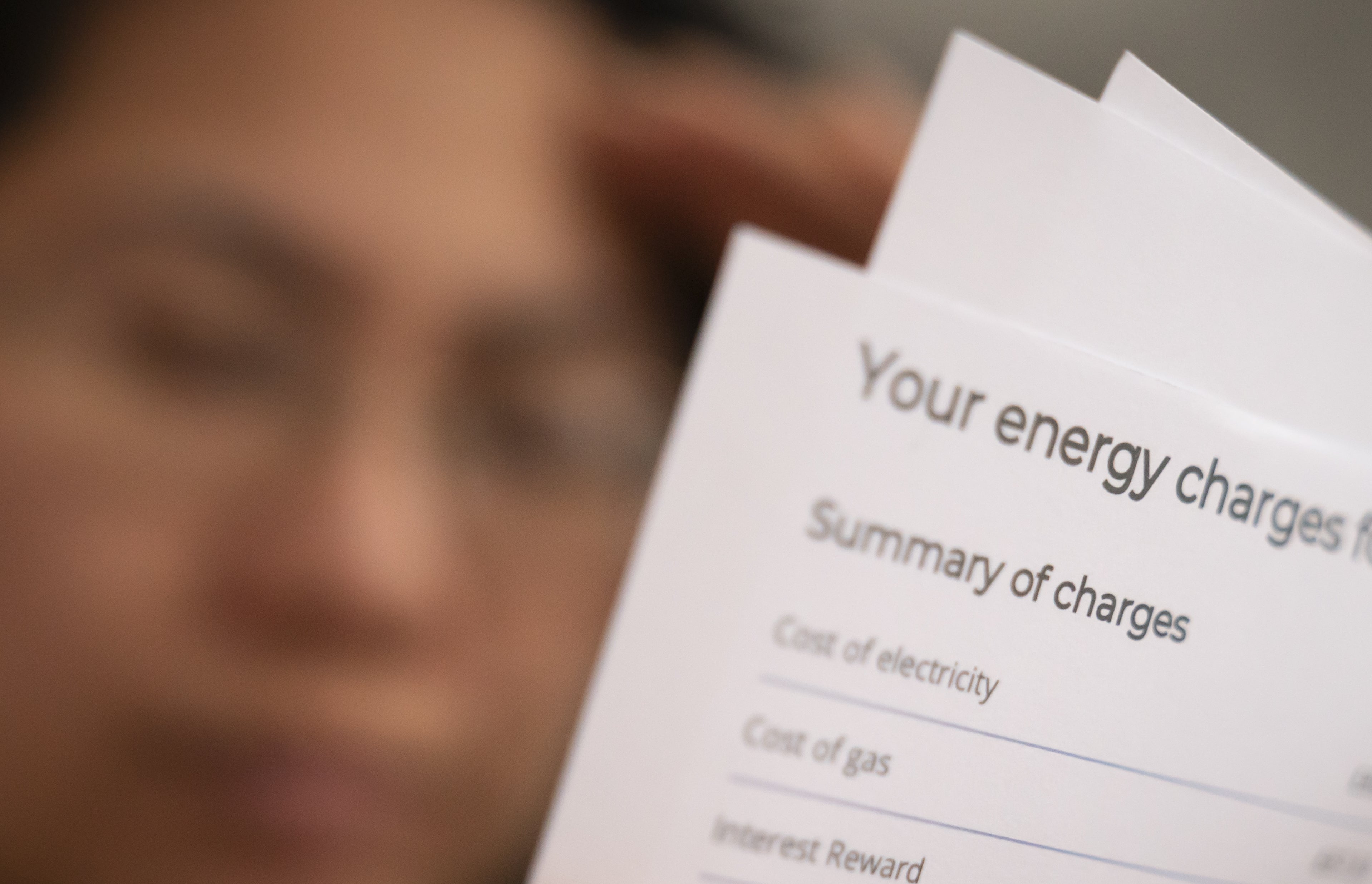Fifth of adults behind on at least one bill, says charity
Some 45% of people on means-tested benefits said they are behind with at least one bill, according to the Money Advice Trust.

Your support helps us to tell the story
From reproductive rights to climate change to Big Tech, The Independent is on the ground when the story is developing. Whether it's investigating the financials of Elon Musk's pro-Trump PAC or producing our latest documentary, 'The A Word', which shines a light on the American women fighting for reproductive rights, we know how important it is to parse out the facts from the messaging.
At such a critical moment in US history, we need reporters on the ground. Your donation allows us to keep sending journalists to speak to both sides of the story.
The Independent is trusted by Americans across the entire political spectrum. And unlike many other quality news outlets, we choose not to lock Americans out of our reporting and analysis with paywalls. We believe quality journalism should be available to everyone, paid for by those who can afford it.
Your support makes all the difference.Around one in five (21%) UK adults are estimated to be behind on at least one household bill, up from about one in seven (15%) in March, according to a charity.
Among those receiving means-tested benefits, 45% said they are behind with at least one bill.
And nearly two-fifths (39%) of people from an ethnic minority background are behind on one bill or more, according to the Money Advice Trust.
Its survey of 2,000 people in August also found two in five (41%) people generally said they had already cut down on all non-essential spending.
This was up by seven percentage points compared with the charity’s previous research in March.
Many households are already facing impossible choices, such as which meal to skip just to keep the lights on
Nearly two in five (38%) people have stopped or reduced their car usage due to fuel costs and 14% have sold personal or household items to cover bills, the August survey found.
The charity, which runs National Debtline and Business Debtline, said that while the Government’s new energy price guarantee will remove the risk of energy bills climbing even further, the sustained impact of high prices has already taken a heavy toll on millions of households.
One in five (20%) people said they had seen their energy bill rise by £100 or more a month since April, according to the charity’s most recent findings.
Its latest research found one in nine (11%) people have gone without food as a result of rising costs. This includes skipping meals, only eating once a day, or not eating at all on some days.
Joanna Elson, chief executive of the Money Advice Trust, said: “The Government’s capping of energy bills provides relief from the fear of future increases, but for millions the damage has already been done.
“Many households are already facing impossible choices, such as which meal to skip just to keep the lights on.
“With the impact of this crisis not being felt equally, further targeted support is needed for those on the lowest incomes.”
According to separate polling for Citizen’s Advice of 6,000 UK adults in May and June, one in four people have borrowed money to pay for essential costs in the last six months.
It said more than 25% of the population reported being in debt, excluding mortgage and car finance payments, rising to 45% of families with children and 56% of people receiving Universal Credit.
And more people are resorting to borrowing money from friends, family and illegal loan sharks, it warned.
The findings are laid bare in a documentary, Broke: Britain’s Debt Emergency – Dispatches, which airs at 10pm on Wednesday on Channel 4.
A money advice supervisor at Manchester Citizens Advice said it feels like “one of the worst” periods of time for advisers.
She said: “We can carry on advising people, but it might get to the stage where it becomes pointless.
“I don’t think things have hit as much as they will. We feel, I feel lost.
“Maybe I can’t speak for other people, but there are times when I genuinely think there is nothing that we can do to help apart from that sticking plaster on, give them a food bank referral and get them an energy voucher which are all very great things but that we can’t just carry on doing that with.
“There isn’t enough funding for that. What do we do?”